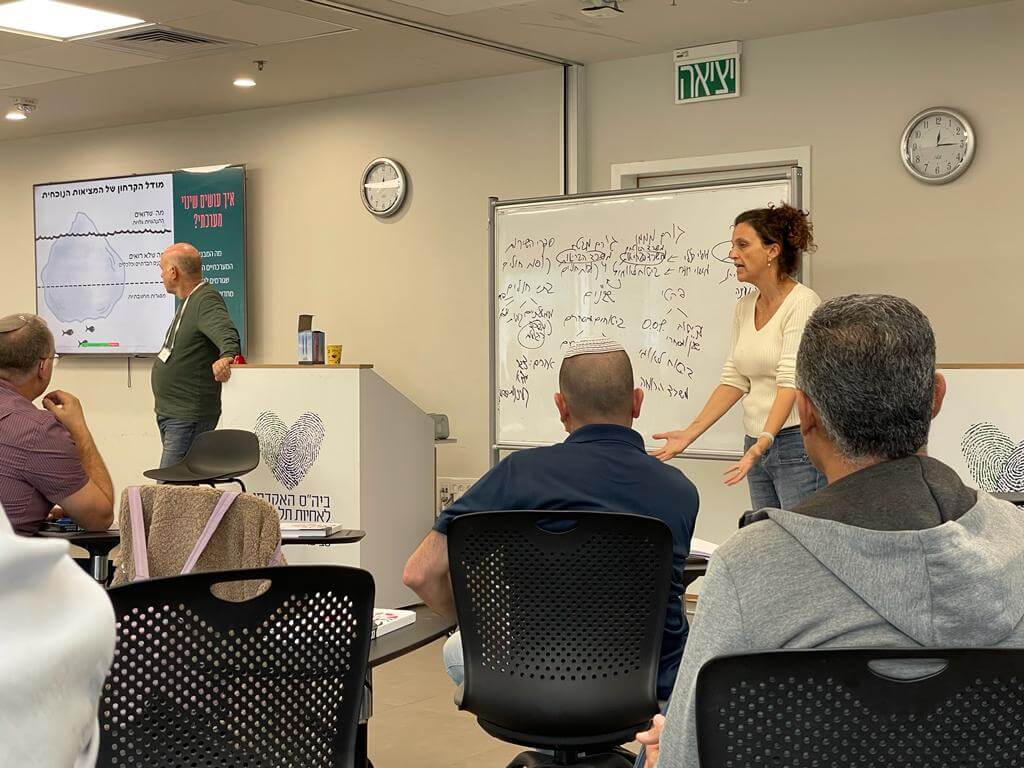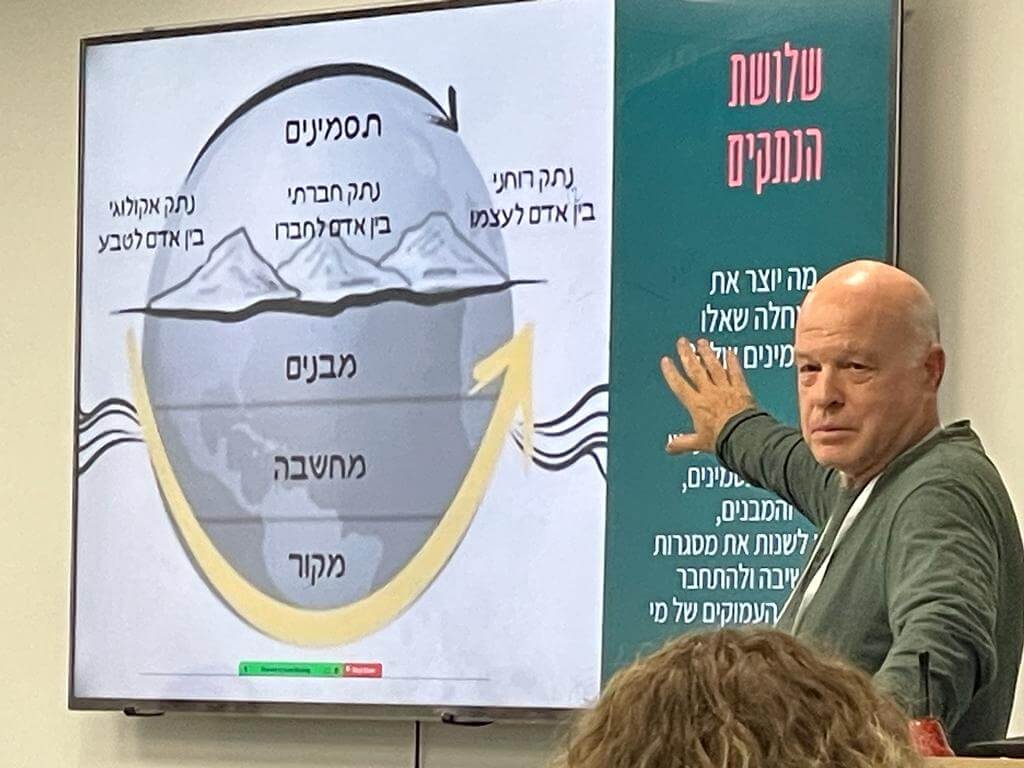
ICEJ provides trauma training for Israeli medical professionals
Published on: 19.12.2023By Nativia Samuelsen

If there is one overwhelming need in Israel today, it is the need for trauma care. Even veteran trauma counselors are being overwhelmed themselves as they deal with the deluge of patients still struggling with the shock of the October 7 massacres.
The same is true in Israel’s medical field, which has long been an inspirational example of Jewish-Arab coexistence. Yet those collegial bonds have been tested by the mass Hamas pogrom and its aftermath, as Israeli medical professionals and emergency first-responders from all ethnic and religious backgrounds are grappling themselves with the trauma triggered by that dark day.
Since that tragic October morning, surveys show an increase of 30% in Israelis suffering from depression and anxiety, according to a Jerusalem Post report. In response, caregivers in the medical field urgently required trauma and resilience training to help them cope themselves so they could then help others.

Extra support is particularly critical at this intense time when medical professionals are overburdened with an increase in patients and a shortage of medical personnel. As hospital wards receive many of the wounded, they are also exposed to high levels of stress and trauma. Aware of these challenges, Nicole Yoder, ICEJ Vice President for Aid & Aliyah sought to do something meaningful in response.
“We jumped at the opportunity to partner with the Joint Distribution Committee to sponsor a pilot course on resilience and trauma training for 30 select managers from hospitals around Israel, knowing it would positively impact thousands,” Nicole stated. “We learned so much as we spoke with participants about the challenges they face on this internal war front.”
Tamar Granik, director of the JDC-Tevet programs, outlined for Nicole the aims and benefits of the nationwide trauma training program for medical professionals being sponsored by the Christian Embassy.



“No one was ready for this situation,” Tamar explained. “We went from ‘we don’t know what to do’ to managing the crisis, then to normalizing the status of crisis day to day. We are grateful for this training on the topic of dealing with tensions between the Arab and Jewish sectors. It is a burning issue for our leaders. In this setting, there are arguments, different languages, and cultures. Right now, everything is shaking.”
As a result, there was an urgent need to expand resilience training to ease tensions and improve the work environment, for the sake of all the patients needing medical care.
“Through this course and the support network, leaders in healthcare can meet with other peers in the medical field, discuss challenges, and receive the necessary tools to respond to the many arising issues,” added Tamar. “No other country in the world would have something similar; this is a very uniquely designed program for Israel.”
Indeed, Israel is becoming a world leader in the area of trauma care, whether they wanted to or not.
Consider Shauli, who must juggle his IDF reserve duty, being a father of three children, and his work as the head nurse in emergency medicine at the Ziv Hospital in Safed. Asked about his most difficult tests, he answered:
“The biggest challenge is the tangible stress in the air. Staff have lost loved ones and friends, and are daily seeing the effects of the terror attacks on victims,” he said. “Furthermore, in this current war, we do not have enough staff or resources, and we haven’t even entered the worst situation if war breaks out on the northern front.”
“I am using the tools I’ve gained here to create more peaceful ways of working by giving my team tools to deal with stress and trauma in a good way,” Shauli continued. “We need this because this is a situation we have not experienced before. We treated young people from the music festival in the south and have seen injuries from atrocious acts of terrorism. As a result, my team is facing major secondary trauma.”

Nicole also spoke with Monique Atias, head nurse of the maternity ward at the Soroka Hospital in Beersheva. This maternity ward is one of the largest in Israel, with more than 17,000 births per year. Monique shared how one third of her staff were evacuated from affected communities near the Gaza border and she was left to find new workers to replace them temporarily while still offering her evacuated staff support from afar.
“The mothers in the wards come with all kinds of challenges,” noted Monique. “Their husbands are in the army, so they may have no family support and they have other children to care for. They face a lot of stress as they prepare to give birth. This course helps me train my team to help the mothers understand trauma while giving them a support net and the best care possible. All the things that I’m learning here are tools to help us do this better.”
“In the days after the war began, I took an idea from our group training and arranged a meeting with all the Jewish and Arab caregivers and nurses in the ward,” continued Monique. “As we talked, tears were often close to the surface, something I had not seen before in my team. The caregivers felt able to share how emotionally and mentally difficult they found it to support patients who might be from Gaza or even just from a community different from their own. In response, we discussed how to separate the war from ourselves as caregivers and the women as patients. This greatly assisted the staff and led to an incredible transformation. Thankfully, we have now overcome those initial emotional barriers.”
One day this war will end and life here in Israel will continue, in all its diversity. Already, this training course has positively impacted 1,500 medical workers as managers implement their new approaches in medical departments around the country, leading to better medical care for all.
Please stand with the ICEJ as we help Israelis from all walks of life to overcome together the traumas of the current conflict. You can be part of these efforts by supporting our ‘Israel in Crisis’ fund.
Donate today at: help.icej.org/crisis.
Hear how this medical professional is coping as she shares her experiences from October 7th.
Photo credits: courtesy of JDC / Pexels-Jonathan Borba